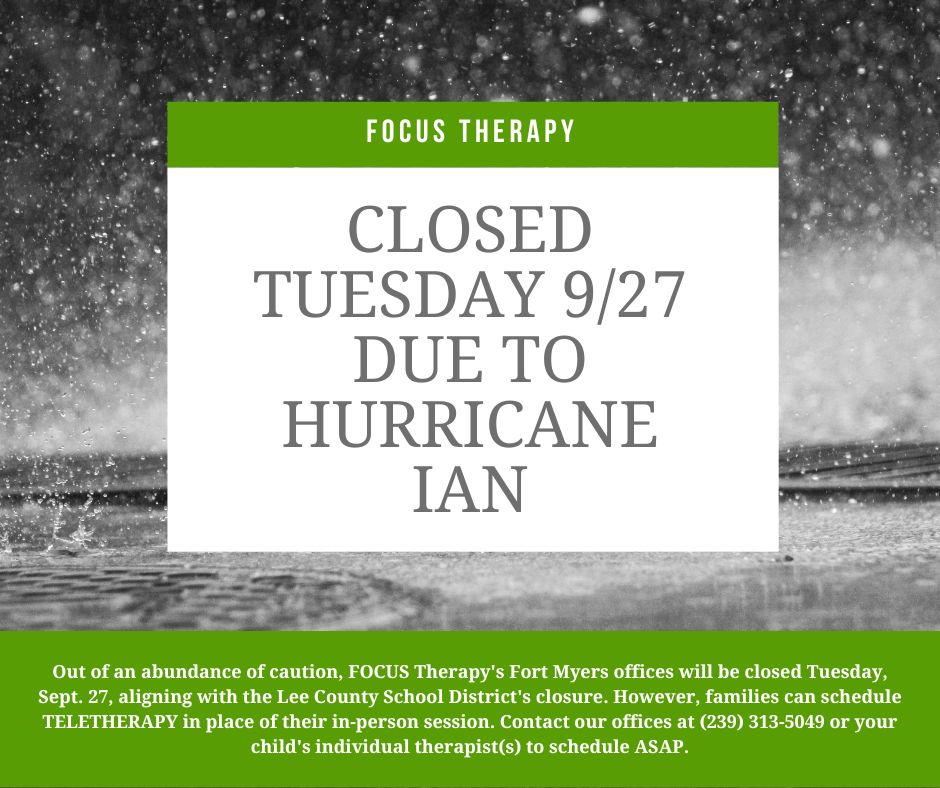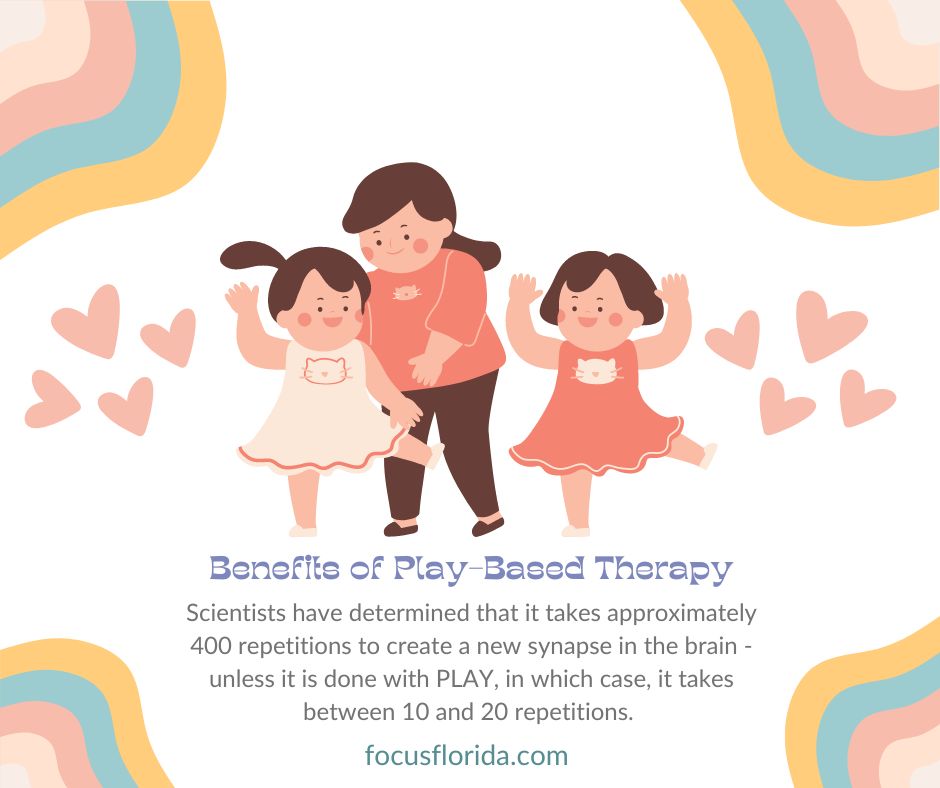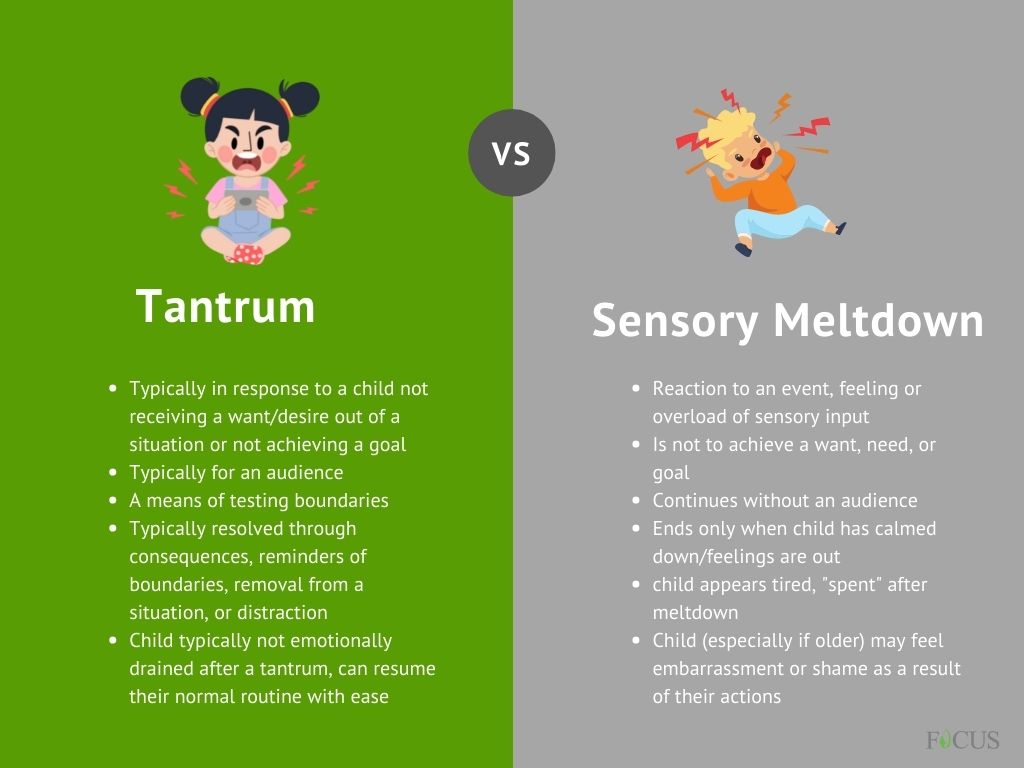Blog
FOCUS Therapy Closed 9/27 Due to Hurricane Ian
- Categorized: FOCUS News
- Tagged: Focus Therapy
ABA Therapy & Occupational Therapy Helps Kids Self-Regulate Big Emotions
- Categorized: Articles, FOCUS News
- Tagged: FOCUS Fort Myers, Focus Therapy, Fort Myers ABA Therapy, Fort Myers occupational therapy, Fort Myers speech therapy
FOCUS Fort Myers ABA and Occupational Therapists on Expressing Feelings vs. Energy on the Autism Spectrum
As our FOCUS Fort Myers ABA and occupational therapists can explain, lots of kids with autism and ADHD have difficulty recognizing or describing their emotions. There’s actually a name for this: Alexithymia.
It’s not a medical condition in its own right, but lots of neurodivergent people describe it as very real, characterized by substantial and continued difficulty with emotional awareness. It was detailed in a recent study published in the journal Frontiers in Psychology.
Some neurodivergent people who experience alexithymia say that it’s easier to discuss feelings as levels of energy, which can seem a bit more tangible than emotions.
Our FOCUS Fort Myers ABA therapists and occupational therapists recently came across a resource created by the therapy consultants at AutismLevelUp.com that describes the various energy levels, and it inspired us to create our own visuals/explainer.
This idea of identifying energies versus feelings closely relates to the Zones of Regulation that our therapy team uses frequently. (i.e., Blue Zone 🔵 = Sad, Tired, Bored, Sluggish; Red Zone 🔴 = Mad/Angry, Scared, Out-of-Control; Yellow Zone 🟡= Frustrated, Worried, Wiggly, Silly, Excited; Green Zone 🟢= Happy, Calm, Focused, Relaxed).
Every person may have their own unique manifestations of these various zones or energy levels (i.e., one may become hyperactive when they are overly-tired – perhaps because they’re overstimulated).
The bottom line is that any time we can help kids better identify their feelings and/or energy level, the better able we are to help them learn the most effective self-regulation strategies.
Self regulation plays a key role in relationships, well-being and overall success in life. People who are able to manage their emotions and control their behavior are more prepared to manage stress, deal with conflict and achieve their goals.
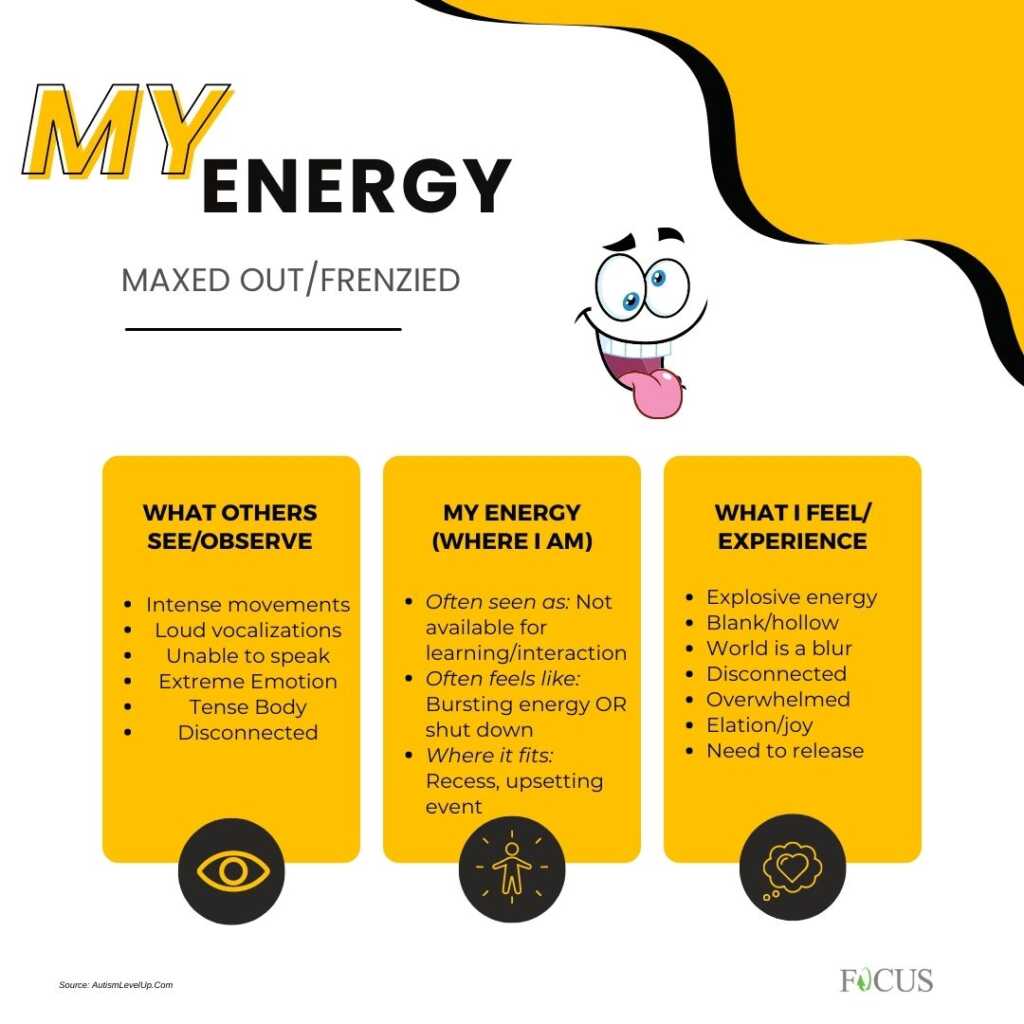


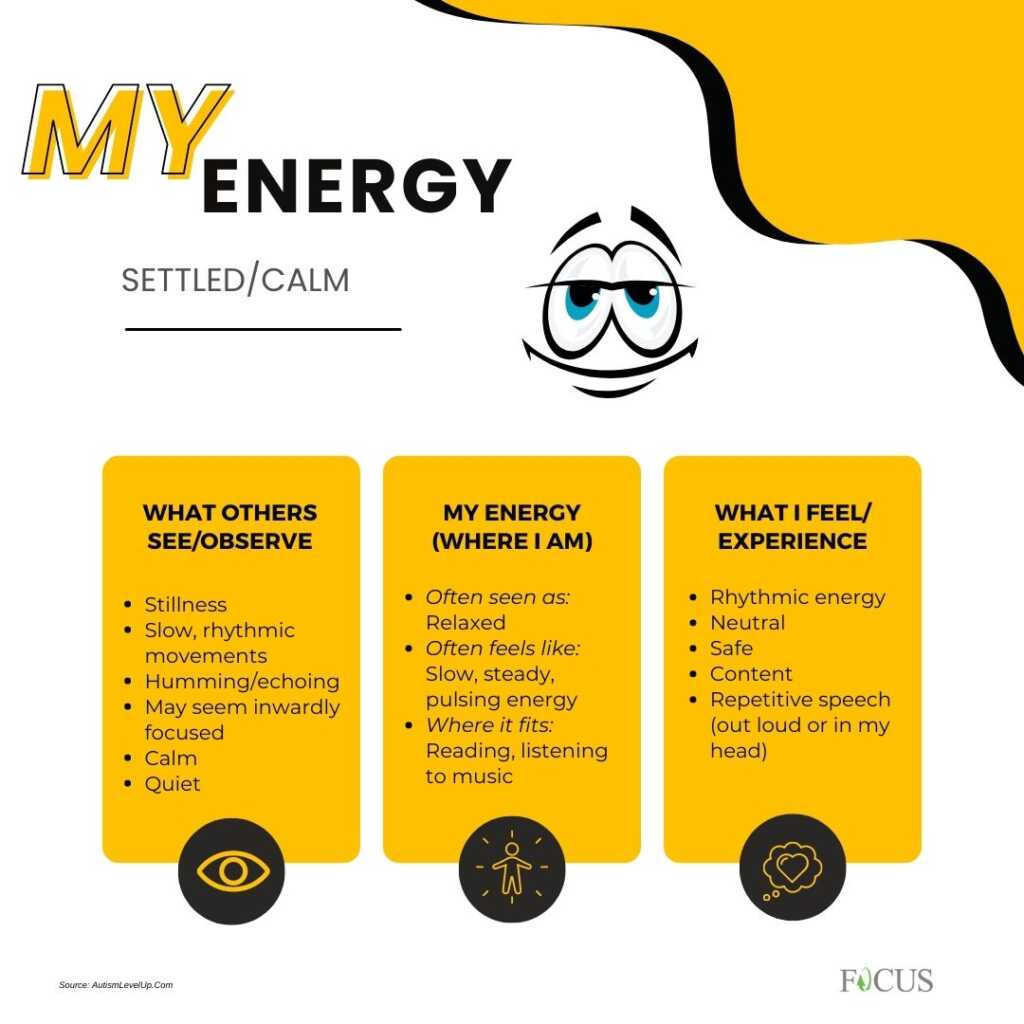
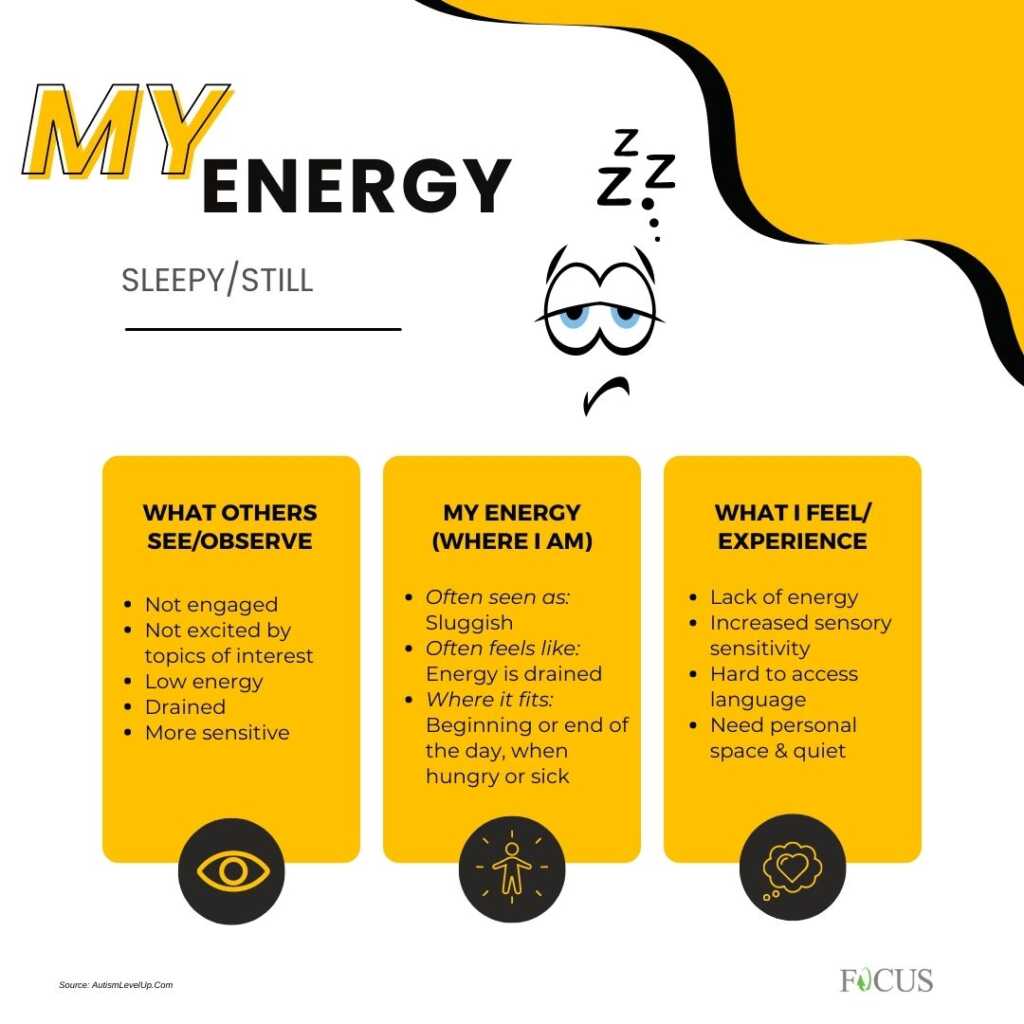
If you have questions about the Zones of Regulation, identifying energy levels, or setting self-regulation goals for your child with autism and/or ADHD, our FOCUS Fort Myers ABA therapists and occupational therapists are here to help.
FOCUS Fort Myers offers ABA therapy, occupational therapy, speech therapy, feeding/swallowing therapy, and physical therapy to kids throughout Southwest Florida. Call (239) 313.5049 or Contact Us online.
Additional Resources:
More Blog Entries:
FOCUS Therapy Only Schedules Evaluations if We Have Space to Treat Your Child, Aug. 1, 2022, FOCUS Fort Myers Therapy Blog
- Categorized: ABA Therapy, FOCUS News, Occupational Therapy
Understanding Sensory Processing Disorder Subtypes
The symptoms of sensory processing disorder may depend substantially on the type of sense that is impacted, how it’s impacted, and the severity experienced by each individual.
Sensory processing disorder occurs in each of our sensory systems:
- Visual
- Auditory
- Tactile
- Smell
- Taste
- Vestibular
- Proprioception
- Interoception
A person might have just one sensory system that is affected, or they could have all eight, with various different subtypes. That’s why our FOCUS Fort Myers occupational therapists drive home the message that each child with SPD needs to be individually assessed – and treatment for every child is going to look different.
Those with sensory processing disorders have difficulty interpreting the sensory input they get. They might feel overwhelmed by sensory information – or they might crave it. They might seem to be untuned to the sensory input or feelings of others. They might be described as “clumsy,” “awkward” or “delayed.”
Here, we explain the main SPD subtypes.
Sensory Modulation Disorder
Sensory modulation disorder is when a person has trouble regulating their responses to sensory stimuli. There are three types of sensory modulation disorder:
- Sensory over-responsiveness. This is when a person may respond too soon, for too long, or too much to a type of sensory stimuli that most people find pretty tolerable or normal.
- Sensory under-responsiveness. This is when a person might be unaware of certain sensory stimulation. They might have a delayed response to it, or their responses could be muted or with less intensity than most people might show.
- Sensory seeking. This is when someone may be compelled to seek out sensory stimulation, but once they do, they may be ultimately unsatisfied or it only results in disorganization. At the very least, it may be seen as socially problematic.
Sensory Discrimination Disorder
The second type of SPD is sensory discrimination disorder. This is when a child may have difficulty interpreting the subtle qualities of people, places, objects, or environments. This can include:
- Auditory discrimination disorder. This would be trouble interpreting auditory/heard stimuli.
- Visual discrimination disorder. Trouble determining or interpreting visual stimuli.
- Tactile discrimination disorder. Trouble interpreting stimuli that is felt or touched.
- Vestibular discrimination disorder. This is trouble determining or interpreting stimuli that is experienced through movement of the body against gravity or through space.
- Proprioceptive discrimination disorder. This is difficulty determining or interpreting sensory stimuli experienced through joints and muscles.
- Gustatory discrimination disorder. This is when someone has trouble interpreting or determining sensory stimuli that is tasted.
- Olfactory discrimination disorder. Trouble interpreting/determining smelled stimuli.
- Interoception. Trouble interpreting internal organ stimulation. (They may not feel the need to use the toilet or they might have frequent stomachaches.)
Sensory-Based Motor Disorder
Sensory-based motor disorder is when one has trouble with motor coordination, balance, and performing skilled motor tasks.
These include:
- Postural disorder. Someone with postural disorder would have a skewed perception of their body position. Therefore, they’d struggle with poorly-developed patterns of movements that depend on stability of the core. They would appear to be weak or have poor endurance.
- Dyspraxia. This is when the person would have trouble thinking of, planning, or carrying out skilled movements – especially new movements they aren’t familiar with.
FOCUS Therapy Treats Kids With Sensory Processing Disorder
If your child struggles with any type of SPD, our skilled team of occupational therapists can help!
FOCUS offers pediatric occupational therapy in Fort Myers and throughout Southwest Florida. Call (239) 313.5049 or Contact Us online.
Additional Resources:
What is Sensory Processing Disorder? March 31, 2022, By Janice Rodden, ADDitude Magazine
More Blog Entries:
Fort Myers Feeding Therapy Tips for Picky Eaters, July 24, 2022, FOCUS Therapy Blog
- Categorized: ABA Therapy, Occupational Therapy
All Therapy at FOCUS is Play-Based Therapy
At FOCUS, all of our Fort Myers therapies are play-based therapy.
Of course, play can be a lot of fun for as adults too – but the real reason we use a play-based therapy model in our speech, occupational, physical, and ABA therapy sessions is simply because: It works.
Study after study shows that when we engage kids in a play-based model of therapy, they’re going to be more engaged, excited about therapy – and they’re going to better remember the skills we’re trying to teach them.
“We never say, ‘Ok let’s go back and do some therapy,'” explains FOCUS Therapy Owner/Founder Jennifer Voltz-Ronco. “No, we say, ‘Hey, are you ready to go play?’ Kids don’t even realize they’re doing ‘work’ – and that makes it more enjoyable – and ultimately more effective.”
FOCUS offers pediatric speech therapy, feeding/swallowing therapy, occupational therapy, behavior therapy, and physical therapy in Fort Myers and throughout Southwest Florida. Call (239) 313.5049 or Contact Us online.
Additional Resources:
Planning a Play-Based Therapy Session, Sept. 2, 2013, By Meredith Poore Harold, ASHA Wire
More Blog Entries:
FOCUS Therapy Take on New CDC Developmental Milestones Guidelines, Aug. 1, 2022, Fort Myers Play-Based Therapy Blog
- Categorized: FOCUS News
- Tagged: ABA therapy, behavior therapy, Focus Therapy, occupational therapy, play based therapy, speech therapy
FOCUS Therapy Only Schedules Evaluations if We Have Space to Treat Your Child
Evaluations are an important step in the process of securing speech, occupational, physical, and/or ABA therapy for your child. But parents and caregivers should be wary of facilities that offer these evaluations while lacking capacity to immediately treat the child.
FOCUS Therapy Owner/Founder Jennifer Voltz-Ronco explains that unless her team is being called on for a second opinion of an initial evaluation, they refrain from conducting formal assessments if unable to promptly provide treatment once the evaluation is complete.
“A standardized assessment is only a snapshot in time during the child’s development,” Voltz-Ronco said. “It’s like taking a picture of a child now, and then expecting it not to change in a few months. … If your child cannot access therapy within 1 or 2 months of that evaluation, the results are no longer going to be accurate. Kids develop new skills every few months. But the longer the child goes without therapy, the more significant that standard score comparison/discrepancy to same-age peers is going to be.”
Beyond this, families who rely on insurance to cover the cost of these evaluations (and they aren’t cheap) should be aware that insurers typically only cover one evaluation every six months or so. Even though clinics can utilize standardized assessments administered by another, it’s not ideal.
“Your child gets the most benefit when the team that directly observed your child’s abilities and deficits are the ones who ultimately formulate a plan of care and follow through with treatment,” Voltz-Ronco said. “In my opinion, it’s unethical for a clinic to profit from an evaluation that reveals a child is delayed or needs intervention – without providing that help.”
Types of Pediatric Evaluations FOCUS Therapy Offers
Children are usually referred to FOCUS Therapy and other therapy specialists by their primary care physician. Evaluations are typically ordered when a child is showing some developmental deficit, such as not sitting up or crawling, not talking or making regular eye contact, or red flags for a possible cognitive deficit. They could also be diagnosed with a condition that we can pretty well say for certain is going to require some combination of therapy services (such as cerebral palsy, down syndrome, vision impairments or hearing deficits).
Depending on the child’s condition and identified areas of concern, qualified therapists will be scheduled to conduct age-appropriate assessments to determine the need for therapy intervention services.
The specifics of the evaluation may vary, but they are generally going to include:
- A look at case history, including medical status, education, socioeconomic, cultural, and linguistic backgrounds, and information from other providers.
- Child and/or parent interview.
- Review of the child’s auditory, visual, motor, and cognitive status.
- Standardized and non-standardized assessments of specific aspects of speech, non-spoken language, swallowing function, cognitive communication, etc.
- Assessment of self-care and/or self-awareness.
- Skilled observation. This is where we keenly observe an accurately record a child’s abilities and behaviors.
There are several different types of standardized tests (including the ADOS test for autism screening, which FOCUS Therapy also provides).
“If a parent wants a second or third opinion after their child has been evaluated by a school or another provider, that’s one thing,” Voltz-Ronco. “But they’re most likely going to pay for that out-of-pocket – and they’re going to understand the purpose upfront. But if parents are looking for action, to get the ball rolling on the therapy interventions that a child needs, then the clinic conducting the assessment should be able to provide that.”
Not all of them do. Therefore, it’s incumbent on parents to ask the question before scheduling the assessment.
“We’ve gotten calls from parents of children who were evaluated other clinics, only to be told after the fact that the clinic did not have the ability to treat their child,” Voltz-Ronco said. “They were told to just call around and see what other clinics may be able to use the report generated from their assessment. That, to me, is not ethical.
“It’s a situation where parents need to be aware of this issue, and make sure they are asking the question upfront: ‘If I schedule this assessment and my child needs treatment, do you have the capacity to provide that treatment?’ If not, I would advise parents to move on and find a place with the capacity and willingness to do both.”
FOCUS offers ADOS testing and other standardized assessments in Fort Myers and throughout Southwest Florida for children who may need speech therapy, occupational therapy, physical therapy, or ABA therapy. Call (239) 313.5049 or Contact Us online.
Additional Resources:
Assessment and Evaluation of Speech-Language Disorders in Schools, American Speech-Language Hearing Association
More Blog Entries:
ADOS Testing, FOCUSFlorida.com
- Categorized: ABA Therapy, ADOS Testing, Occupational Therapy, Speech Therapy
- Tagged: FOCUS ABA therapy, FOCUS speech therapy, Focus Therapy, FOCUS Therapy Fort Myers, Fort Myers ABA Therapy, Fort Myers ADOS testing, Fort Myers speech therapy, Lee County ADOS testing, Lee County pediatric speech therapy, Southwest Florida ADOS testing
FOCUS Therapy Take on New CDC Developmental Milestones Guidelines
- focustherapy
- Aug 01, 2022
- Comments: ( 1 )
Earlier this year, the U.S. Centers for Disease Control & Prevention (CDC) updated its developmental milestones guidelines used to identify potential red flags indicating a child may need early intervention services. This process was initiated long before the pandemic, and finalized in February.
After taking some time to consider the impact of these new standards, our FOCUS Therapy team has some concerns that we hope parents and local providers will pay attention to when weighing whether a child may require early intervention, such as speech, occupational, physical, feeding, and ABA therapies.
What Are CDC Developmental Milestones?
The milestones guidelines put forth by the CDC are essentially a point-by-point list of activities or skills that most children can do or have mastered by a certain age (primarily between birth and age 5). It includes skills that fall under one of the following categories:
- Social/emotional
- Language/communication
- Cognitive
- Movement/physical development
Examples of identified milestones would be things like waving “bye-bye” or saying words besides “mamma or dada” or taking a first step.
The old milestones can be found here.
The updated milestones can be found here.
Why Did the CDC Update the Milestones?
The CDC, along with the American Association of Pediatricians (AAP) said that the updates were conducted by a group of its experts, with changes required because the standards had not been revisited since 2004.
A spokeswoman for the CDC told Reuters that the agency had been discussing revising the milestones back in 2017, and that the work began in 2019. Analysis of parent understanding and relatability was conducted in mid-2020.
The goal, say agency leaders, was to make the guidelines more helpful to families. The language contained in the previous guidelines was reportedly vague, with parents on many fronts urged to take a “wait-and-see” approach. That approach is now broadly understood to no longer be the best course of action when children are delayed on key developmental milestones.
The updated version now includes checklists for 15 and 30 months, and milestones that are considered “standard” when 75 percent or more kids can be expected to those skills. That differs from the previous standards, which were based at 50 percent mastery.
Why Our FOCUS Therapists Have Concerns About the New Milestones
Certainly, eliminating a wait-and-see approach to any concern regarding kids’ developmental milestones is important. We now know that prompt intervention therapies (speech, occupational, physical, and ABA) are the critical when there are concerns about a child’s development. Early intervention is strongly correlated with optimal long-term prognoses for these kids.
The CDC says that by resetting the bar, they are able to pinpoint kids whose delays are clinically significant and who unquestionably should be funneled into the pipeline for early intervention services. This is as opposed to “worrying families whose children may developing normally at a slower rate than average.”
Our concern at FOCUS Therapy, however, is that in moving the milestone bench marker from “this is the age at which 50 percent of kids have this skill” to “this is the age at which 75 percent of kids have this skill,” the CDC has effectively lowered the standard for who may qualify for early intervention. In turn, that could mean kids who truly need these services may end up waiting even longer than they are now to obtain them.
“We want parents – at the earliest sign of an issue – to start raising the question, pushing for answers from doctors, and getting the ball rolling for evaluations and early intervention therapy services,” said FOCUS Therapy Owner/Founder Jennifer Voltz-Ronco. “This is especially important in regions like South Florida, where it could take months just to get an evaluation, let alone an appointment to see a pediatric developmental specialist and get therapies lined up from there. We don’t want them waiting any longer than they have to because it is already going to take many months to secure these services. All the while, they’re going to be falling further and further behind their peers. The concern with these updated developmental guidelines is that is exactly what’s going to happen.”
There’s also a worry that health insurance companies may not approve treatment for kids if they’re slightly younger than what’s identified in the new guidelines – even if we as parents, therapists, and other health care providers can clearly see the benefit and need for services.
“Our recommendation, if you have any concerns about your child’s development, is to raise them to your child’s pediatrician and press them for a referral to specialists who can conduct assessments,” Voltz-Ronco said. “The earlier we can intervene for kids who have a delay, the better the long-term outcomes.”
FOCUS offers pediatric speech therapy, occupational therapy, feeding therapy, physical therapy, and ABA therapy in Fort Myers and throughout Southwest Florida. Call (239) 313.5049 or Contact Us online.
Additional Resources:
CDC’s Developmental Milestones, CDC
More Blog Entries:
A New Diagnosis: Pediatric Feeding Disorder & How Fort Myers Feeding Therapy Can Help, June 27, 2022, Fort Myers FOCUS Therapy Blog
- Categorized: Articles
Tantrum or Sensory Meltdown? Fort Myers ABA Therapists Explain
When working with kids who have varying sensory struggles, it can be difficult to tell the difference between a tantrum or a sensory meltdown. Our Fort Myers ABA therapists recognize that it often takes some detective work to differentiate. But determining which is which is important when formulating the most effective response.
A sensory meltdown can be especially tough to identify because a child’s sensory thresholds can vary from day-to-day or even hour-to-hour.
Some behaviors that may be present in BOTH:
- Screaming
- Kicking
- Name-calling
- Hitting
- Crying
- Hiding or avoidance
Tantrums, however are typically a response to a child not receiving something they want or an anticipated outcome. Sensory meltdowns, meanwhile, stem from sensory overload, with reactions being to the big feelings that the overload can cause.
In the case of a meltdown due to sensory issues, parents may need to formulate a strategy that plans ahead, rather than simply react to the meltdown when it happens. That means meeting their sensory needs through a sensory diet (unique to each child) that can help them avoid feeling completely overloaded and overwhelmed.
We need to look carefully at the sorts of things that can trigger a sensory meltdown. Some possible meltdown triggers can include:
- Being overly tired or hungry.
- Generally not feeling well. (This can stem from illness, food sensitivity, overheating, etc.)
- Being expected to “hold it together” for long periods of time, such as going to summer camp, school, or on play dates.
- An abrupt change in routine – anything outside of the ordinary – can set off sensory overload.
Because the overload may not be immediate, it can sometimes appear like a meltdown “came out of nowhere.” But there is almost always a source when we look very carefully at the “antecedents,” or events that occurred prior to the meltdown. You may even have to go back a few days to pinpoint the cause.
Toddlers and preschoolers may be especially prone to tantrums because they do not have the motor, language, or problem-solving skills to work through some of their frustrations on their own. They may have an emerging desire to be independent, without having the skills to actually BE independent. They might have emerging language skills, and thus are unable to communicate what they actually want or need. They may have big feelings, but lack the prefrontal cortex development to emotionally regulate. They may have a growing understanding of the world around them, but also a lot of anxiety about how to move through it.
Tantrums usually only end when a child gets what they want or when they’re rewarded for better behavior.
Meltdowns, on the other hand, only end when the child tires out or the sensory input is altered. They stem from what we sometimes refer to as a “physiological traffic jam” in the central nervous system. There is too much overstimulation and feeling limited in your ability to “exit.” This can trigger a “fight or flight” response.
As parents, therapists, teachers, and caregivers, it’s important to recognize that the behaviors we’re seeing are not controllable behavioral reactions. Rather, they are physiological responses. This is why our Fort Myers ABA therapists and occupational therapists put such emphasis on identifying which is which so that you can appropriately respond.
With tantrums, you need to recognize the motivation or purpose, reinforce positive behavior, and build skills for success.
Meltdowns, however, can sometimes be avoided when we use visual schedules, social stories, and checklists to help kids know what is expected. There are no surprises or question marks. Reducing the unexpected changes in routine is going to reduce the overall stress that can trigger a meltdown.
We also recommend routine sensory diet activities, like scheduling quiet time or offering them breaks for sensory input.
Parents and teachers should also be able to recognize signs of a child’s distress. This could be covering their ears or rocking back-and-forth or humming or bolting from the room. Once you are able to quickly recognize the signs of overstimulation, you can respond to help them regulate before reaching the meltdown stage.
FOCUS offers pediatric ABA therapy in Fort Myers and throughout Southwest Florida. Call (239) 313.5049 or Contact Us online.
Additional Resources:
Expert Ways to Help Tame Tantrums and Manage Meltdowns, June 18, 2021, By Alescia Ford-Lanza, MS, OTR/L, ATP, Autism Parenting Magazine
More Blog Entries:
Study: Less than 1/2 Kids With Autism Undergo Early Intervention Therapy, July 30, 2022, FOCUS ABA Therapy Blog
- Categorized: ABA Therapy, ADOS Testing, Behavior Therapy
- Tagged: behavior therapy, child tantrums, Fort Myers ABA, Fort Myers ABA Therapy, sensory meltdown
Fort Myers Speech Therapist Tips for Kids Who Struggle With “Inside Voices”
How many times a day are you admonishing your child to please use their “inside voice”? As a Fort Myers speech therapist, I love it when kids are engaged and excited to participate in a conversation! That said, I also recognize that sometimes our little friends can get a bit TOO lively – and loud – for the situation.
The reality is all kids frequently yell, stomp, shriek, use screechy or whiny tones – and for all kinds of reasons.
Teaching kids how to control their volume – and practice using “inside voices” – is important because there are many real-life situations that require it.
Learning how and when to adjust voice volume is a life skill – one that may be particularly tough to grasp for kids with social communication deficits.
As a Fort Myers speech therapist, the goal isn’t just to teach kids how to communicate, but how to do so pragmatically, or in a way that is socially accepted and beneficial. That means teaching the “inside voice” (quieter) versus the “outside voice” (louder) is key.
Understanding Reasons Behind Voice Volume
The first step in addressing voice volume issues is understanding WHY kids are speaking loudly. Sometimes, they may feel they need to do so to get attention. They often don’t realize how loud they are actually being. And they also probably don’t understand that in certain spaces, they’re required to use a lower volume, and that failing to do so can have a negative impact on others in that space. (And for kids who are not neurotypical, it may take them more than a few reminders to remember.)
The American Speech-Language Hearing Association (ASHA) reports that it’s only between ages 4 and 5 that kids start talking differently in different settings and with different people. As a Fort Myers speech therapist, I recognize it as a speech development milestone that ultimately paves the way for them to recognize almost instantly whether this a place is one where people are using “inside voices” or “outside voices.”
Talk About Voice Volume With Your Kids
The first step to helping your child know what noise level is expected in a given setting and/or with different people is to TALK about it. That means not only telling them what is expected, but also why.
- Categorized: Speech Therapy
- Tagged: Fort Myers kids speech therapy, Fort Myers speech therapist, Fort Myers speech therapy, Lee County speech therapist, pediatric speech therapy, pediatric speech therapy Lee County, pediatric speech therapy Southwest Florida, speech therapist Fort Myers, SWFL speech therapy
Study: Less than 1/2 Kids With Autism Undergo Early Intervention Therapy
Early intervention therapy for autism is crucial to optimal long-term outcomes for children on the spectrum. “Early intervention,” defined as a combination of speech therapy, occupational therapy, physical therapy, nutrition/feeding therapy, and ABA therapy, should ideally begin before age 3 to be the most effective. Yet a new study found that more than 50 percent of children with autism do NOT get the critical early intervention that has been proven to lay the foundation for yielding the best sustained results.
Researchers at Rutgers University analyzed the early intervention participation of kids with autism in one state, and found less than half were receiving early intervention therapies before turning 3.
The study, published in JAMA Pediatrics, revealed income and racial disparities unfortunately played a role in how likely children were to have access to early intervention. Study authors opined that the issue was likely worse in other states.
As our FOCUS Therapy Fort Myers team understands it, the researchers analyzed data from the New Jersey Autism Study, a monitoring system that was set up by the Rutgers New Jersey Medical School, focusing on the records of some 23,000 kids. They identified approximately 4,000 8-year-olds diagnosed with autism. Of those, only 1,890 of them had participated in early intervention therapy services. This was true even though these services are required by federal law under the Individuals with Disabilities Education Act.
To identify where the disparities were most prominent, the team analyzed information on wealth indicators (median household income, primarily) and discovered that kids who lived in areas with higher incomes were 80 percent more likely to have access to early intervention autism services than kids who lived in lower-income neighborhoods. They also learned that Black and Hispanic children were less likely to enroll in these services compared to their white counterparts.
Study authors stressed that understanding socioeconomic and cultural barriers to both early diagnosis and these essential therapy services are important components of helping improve education and access.
Early Intervention Therapy Key to Addressing Child Development Concerns
- Categorized: ABA Therapy, ADOS Testing
- Tagged: Autism diagnosis, early intervention Fort Myers, Early intervention therapy, Florida early intervention therapy, Fort Myers autism diagnosis, Fort Myers early intervention, Fort Myers early intervention therapy, Lee County ADOS testing, Lee County autism treatment, Lee County early intervention, Lee County occupational therapy, Lee County speech therapy, Southwest Florida autism, Southwest Florida autism diagnosis, Southwest Florida autism resources

